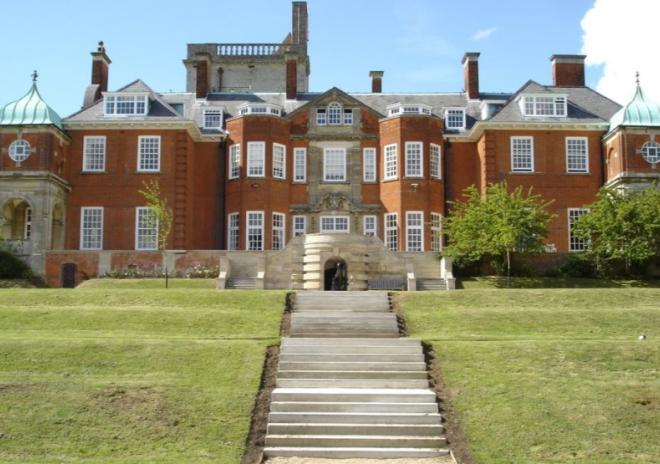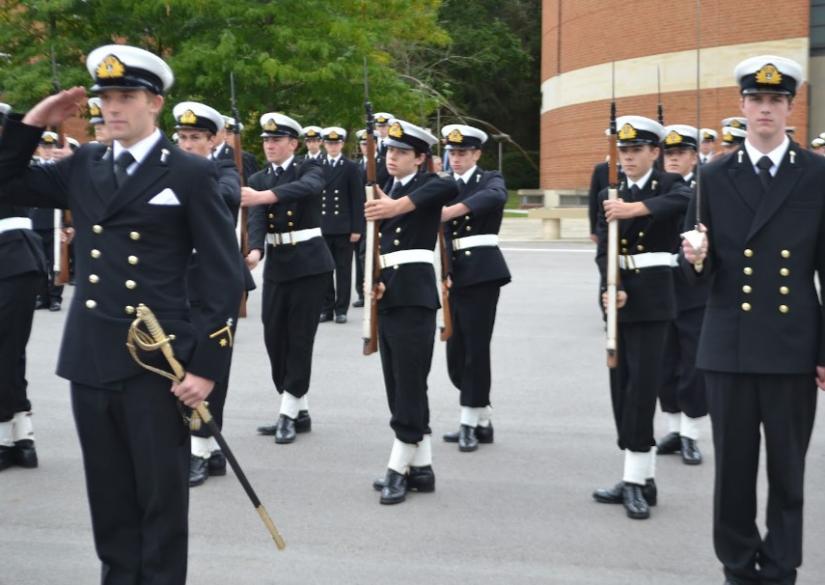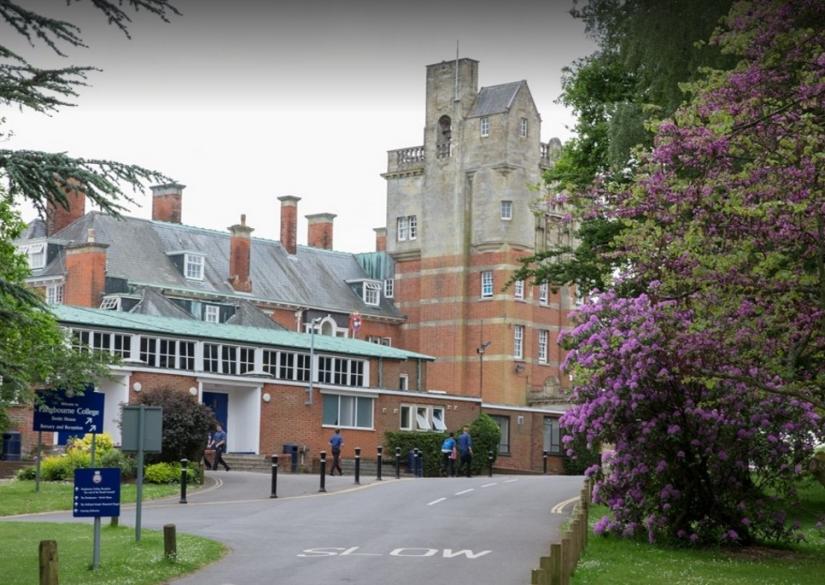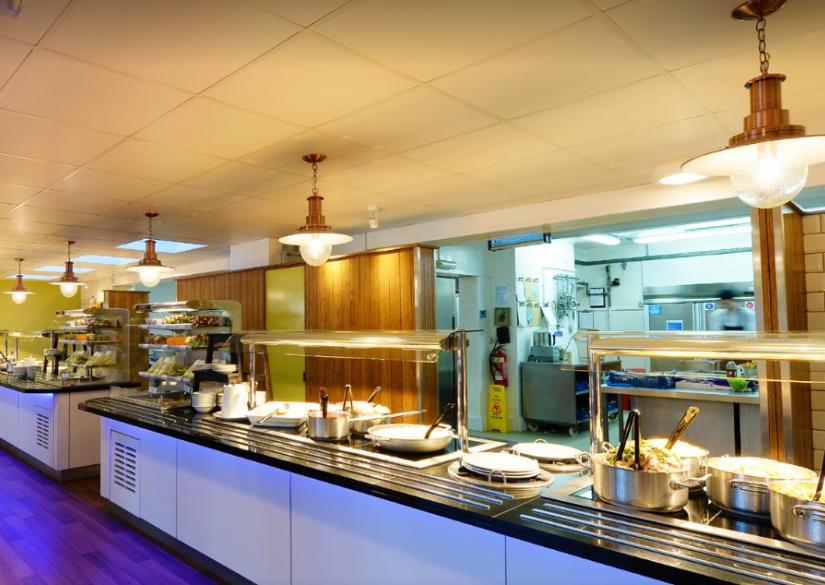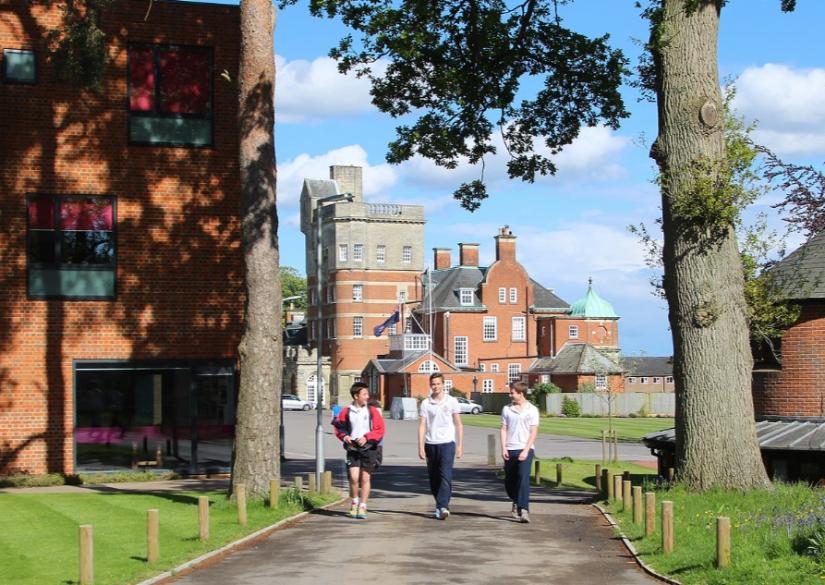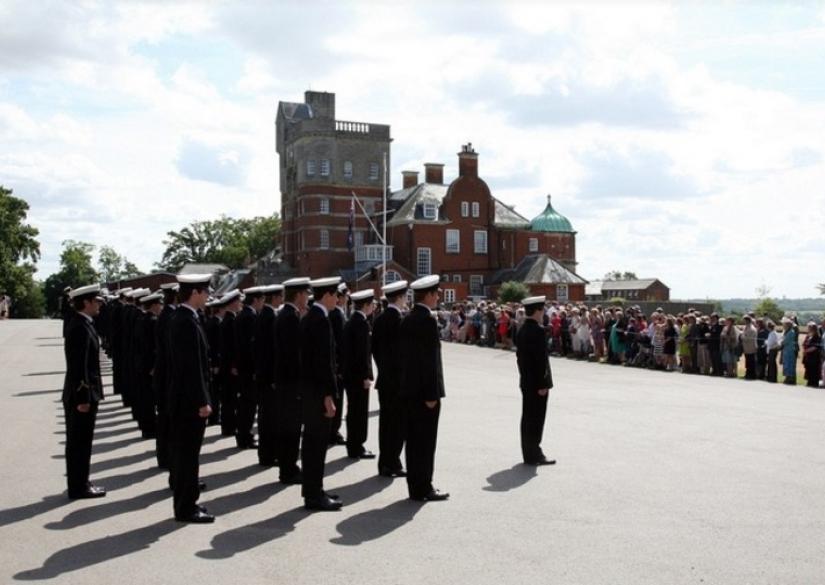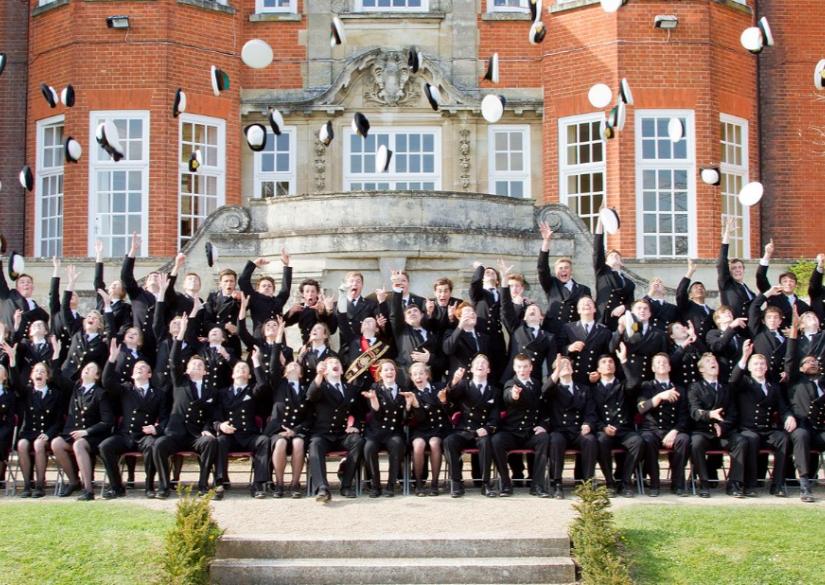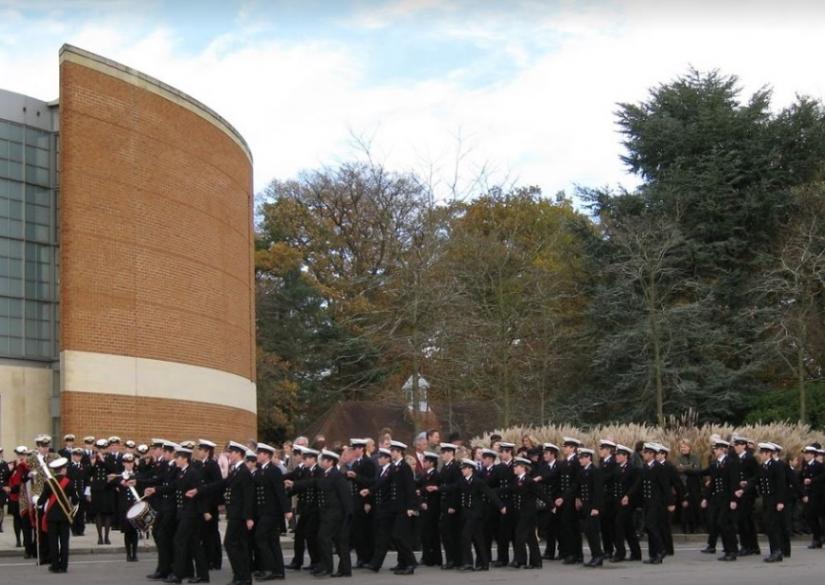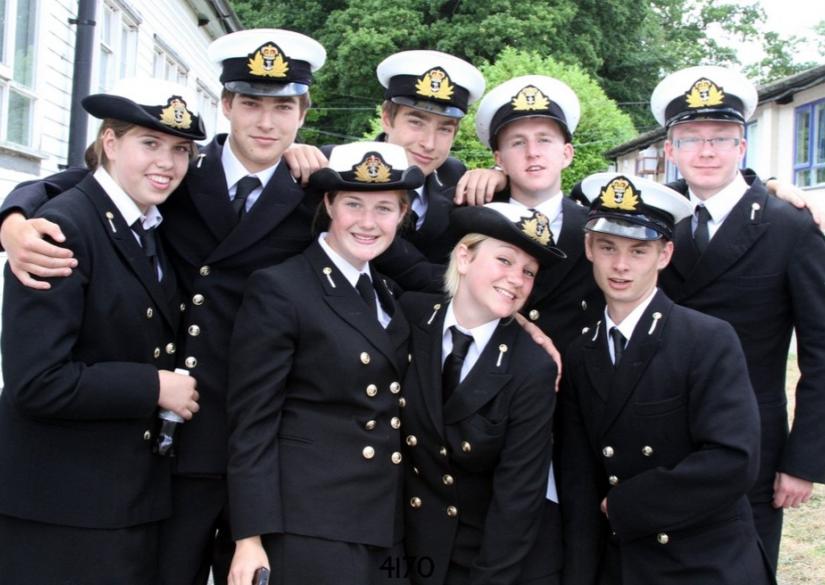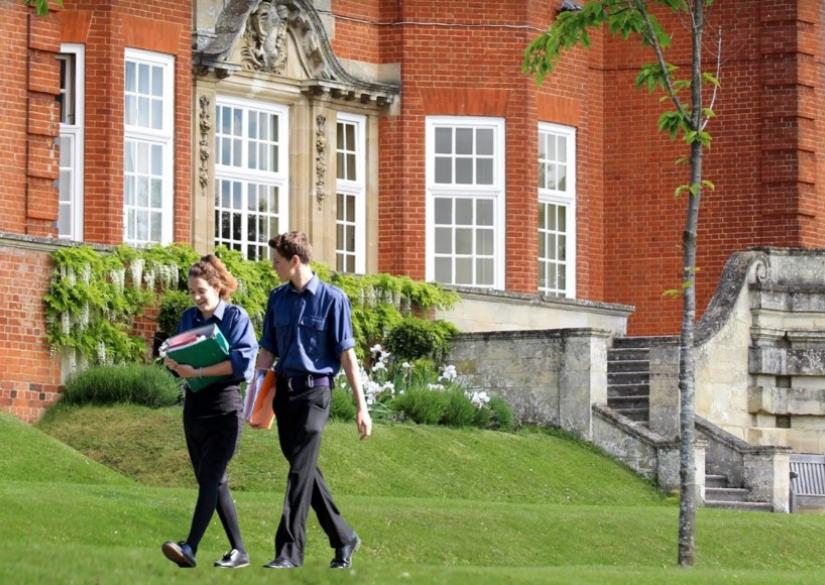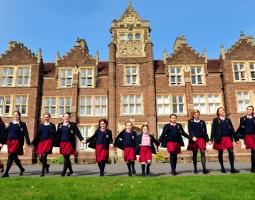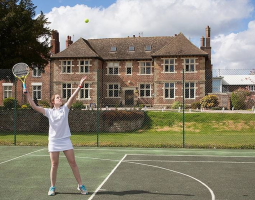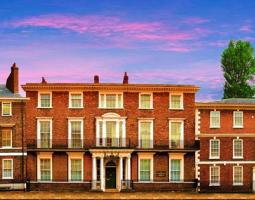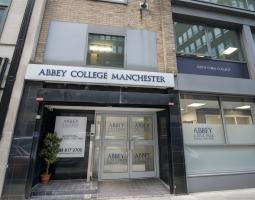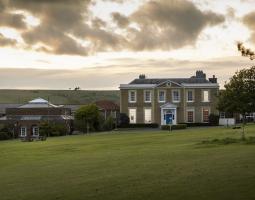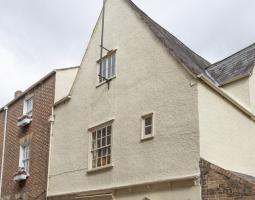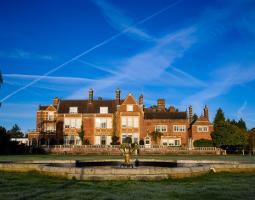Pangbourne College
In the process of preparing the material, we referenced the following sources: Wikipedia, GOV.UK
Programs and prices, tuition fees in Pangbourne College
GCSE
The program, which completes the course of incomplete secondary education, is designed for 2 academic years and is offered to students aged 14-16.
The curriculum includes a fairly large number of subjects: some - compulsory (for example, mathematics, English), the rest can be chosen as electives from 17 available options. In the final exams, students usually pass 8-10 disciplines. Separately, the non-examination subject General Studies is taught, which allows to develop actively academic skills and improve knowledge of the basic elements of the modern world:
- Politics;
- Foreign languages;
- Mathematics and exact sciences;
- Natural science course;
- Art.
For senior students, there is an opportunity for internships and working practices, student exchanges with schools in Germany and France - this helps children to succeed in learning foreign languages.
Often students choose foreign languages (for example, Spanish, French, German), information and communication technologies (ICT), drama and theatrical art, art and design, poetry and creative writing (Creative Writing) as exam subjects on GCSE.
A-level
A well-known British advanced level course is designed for high school students aged 16-18. High school students at the Sixth Form not only complete the secondary school program, but also prepare for admission to the chosen university within two years - the A-level certificate is valued so highly that it entitles its holder not to pass the entrance exams even to the most prestigious universities.
All subjects for A-level students choose on their own: usually it's 4-5 disciplines for the first year (AS level), of which only 3-4 are left for the second year, for which exams are taken. In total, there are more than 21 subjects to choose from, of which the following can be noted:
- Dramatic art and theatrical skills
- Physical culture and sport
- Modern foreign languages (Spanish, German, French and others)
- Information and computer technologies (ICT)
- Art and design / design and poetry.
There is an opportunity for internships and work practices, regular student exchanges with the schools of France and Germany. In addition to the active improvement of academic skills, it gives children rich knowledge about all key aspects of the modern world:
- Politics;
- Art;
- Mathematics;
- Natural sciences;
- Modern foreign languages.
IB
The International Baccalaureate (IB) program is the best choice for students who are not fully determined with the university: the program is highly valued around the world, so it does not limit the graduates in choosing the country and university for further education.
During a two-year course, students study 6 subjects: 3 on a standard level of complexity and 3 on a more in-depth level. All subjects, as well as the degree of study, students determine on their own: this makes it possible to concentrate as much as possible on the most priority directions for enrolling in the chosen faculty, specialty.
There is an opportunity for internships and work practices, regular student exchanges with the schools of France and Germany. In addition to the active improvement of academic skills, ithe gives children rich knowledge about all key aspects of the modern world:
- Politics;
- Art;
- Mathematics;
- Natural sciences;
- Modern foreign languages.
Description of Pangbourne College
- Founded: in 1917
- Location: Pangbourne, Berkshire, United Kingdom
- The age of students: 11-18 years
- Total students: 400 people (225 at the hostel)
- Educational programs: GCSE (IGCSE for foreign students), A-level, IB
- Accommodation type: residence (board: full and partial, available from 11 years)
- Type of studying: mixed.
Pangbourne College was founded in 1917 as a special men's academy for naval studying. Today it is a well-known and popular school of mixed education, but historical traditions are still traced: in the list of extracurricular activities there is navigation and orientation, schoolchildren devote much time to teamwork and the development of leadership qualities.
Most recently, the entire campus of the college was updated and substantially modernized - today it meets the high standards not only of Britain, but of the whole world. College Pangborn is a member of the HMC School of Directors Conference is an active member of it. According to statistics, more than 70% of parents of students are engaged in commercial and industrial spheres, and 5% are serving in the armed forces; More than 60% of families live in transport accessibility from school (within 30 miles).
Among the educational advantages of the British boarding school are special support programs for children with dyslexia, as well as English language courses (EFL) for foreign students. Attention and professionalism of teachers give their results - this is clearly visible on the results of examinations:
- GCSE: more than 70 students pass, with 87% getting good grades from C (giving more than 5 subjects)
- A-level: more than 50 students, of the subject.
According to statistics, 90% of graduates enter selected universities and higher schools (about 27% prefer to take a year of rest and break). The most popular specialties among graduates, the following areas of British higher education can be noted:
- Art
- Medicine
- Dentistry
- Veterinary Medicine
- Dramatic and acting skills of the theater
- Arts and Design
- Engineering
- Social and Human Sciences
- Natural Sciences.
All students are required to wear a general uniform throughout the day. The college belongs to the Anglican church - regular services are held in the local chapel, but children of any confession and religion can study here.
High school students can have their own bicycle on the territory. It should be noted that with sufficient democracy, the school is still harsh in breaking the general rules and regulations - for example:
- A pupil who does not do his homework must stay after lessons for at least an hour;
- Students who are caught using alcohol or drugs will be excluded.

What advice can you give to potential applicants who choose UK schools?
I would advise you to actively study English, read more - it actively develops understanding of the language, knowledge of grammar, construction of sentences and phrases. Try to talk to as many people as possible, look for resources on the Internet, watch movies - be more active!
Accommodation, meals, prices
The boarding students are accommodated in comfortable campus residences: 20% of students occupy common rooms (6-8 people), 50% - rooms for 2-4 people and about a third of students occupy private bedrooms (usually a senior pupil's privilege). Each house can accommodate up to 60 people: boarding is possible both full and partial (staying only a few days a week is usually weekdays, and the weekend pupils spend at home).
A nurse and a general practitioner are constantly on duty at the school. The hostels are run by the elders and prefects, whom the director personally appoints: they are also responsible for the various competitions that take place between the houses.
In their free time, students can visit the nearest village, weekend trips outside the campus are possible twice in a trimester with the permission of the teacher and personal curator (with mandatory notification of the guardian).
Subjects, specialties
Activities Pangbourne College
Among the extra-curricular activities in the college, students are very popular with music lessons: more than 40% of students play at least 1 musical instrument (there is even an opportunity to pass a specialized exam). The church has general choir, a marching and chamber orchestra, numerous musical groups and even a jazz band.
Annually students organize a large theatrical performance - many students begin to study drama and acting in more detail and even choose these subjects on the GCSE and A-level. In the local residences, the Drama Festival is held annually, twice a year the school choir and orchestra leave for the foreign tours.
Unlike many other British boarding schools, Pangbourne College does not place sport as an obligatory part of the school curriculum, but this does not affect the students' interest in physical education - they like sports and attend regularly here. Among the most popular sports are the following:
- Rugby (mostly boys)
- Netball (usually girls)
- Hockey
- Sailing
- Cross-country running
- Rowing
- Track and field athletics
- Golf
- Squash
- Grand tennis
- Judo.
College students regularly participate in regional, national and even international competitions. Senior students can take part in the competition for the Duke of Edinburgh Prize (night expeditions + sports + socially useful work), and the United Cadet Corps with the full program of military sports studying (CCF) is opened to them.
Besides, on the campus there are always interesting entertaining events, various mugs and studios on interests: debates, music, discos and parties, joint film screenings and trips to the cinema, drama evenings with students of neighboring schools. In the season, students go to the ski resorts in Europe, they go to learn the language and culture of Spain, France and Germany.
Facilities and equipment at Pangbourne College
The college is just a mile from the town of Panbourne in the county of Berkshire, almost on the banks of the Thames. It is a calm, quiet and pleasant countryside. The total campus area reaches 230 acres.
Admission dates and extra charges
The course price already includes:
- Tuition on the selected program
- Accommodation and meals (full board, residences on campus)
- 24-hour supervision of students and guarantee of their safety
- Medical care if necessary
- Regular control of knowledge and reports for parents
- Educational trips and student exchanges.
The following components are paid additionally:
- Registration fee
- Tuition fee
- Guardianship (registration with the agency + guardian services)
- School uniform
- Transfer in both directions
- Air tickets in both directions
- Compulsory medical insurance
- Personal pocket expenses
- Visa fees and services, translation and certification of documents
- Consular collection (paid at the Embassy).
Extras:
- Registration fee (for a programme/course) 150 GBP
- Deposit for a course/programme 12680 GBP
Entry requirements, how to apply, what is required to enrol
Most students go to college at 11, 13 and 16 years old. All entrants are waiting for entrance exams. For example, those entering the A-level must present a GCSE certificate, passing at least 5 subjects at least C (those items that are planned to be studied on the A-level, a minimum of B).
According to statistics, about a quarter of students come to college from public schools.
Literature and references
Institution on the map
Residence permits, citizenship and other services
- Guardianship services during the studies
- Student supervision
Review about Pangbourne College
Recommendations on when to apply
| Language courses, schools and children's language camps | Primary and secondary education - private schools | Preparation programmes for entering universities - higher education | Higher education (after completing accredited programs A-level, IB, High School) - Bachelor, Master, MBA |
| - we recommend to apply 6-9 months before the start of the course (some camps and schools offer discounts for early booking or for lengthy study programs) - there are some very popular and high demand children's camps, where the applications need to be submitted 1 year in advance (in particular Switzerland , Great Britain , USA , Canada , Austria) | - we recommend to apply one year before the start of the training program, - some schools have a specific time frame (September-November - please specify an individual school) - some schools require tests in several stages (UKISET, internal tests of the school: English, mathematics, logics, subjects, interview, some require a personal visit) | - we recommend to apply one year before the start of the program, - for Foundation and Pathway programs, IELTS and TOEFL certificates are usually required, respectively | - recommended submission one year before the start of the program, - the deadline normally closes in January, for TOP HEIs and, as a rule, in March in other universities - for a bachelor, a Foundation or Pathway preparatory program a completed A-level, IB, High School + IELTS / TOEFL are required - for Masters you need a graduated higher education, in some cases you need a pre-Masters program - MBA requires completed higher education, work experience preferably at least 2-3 years, etc. |


